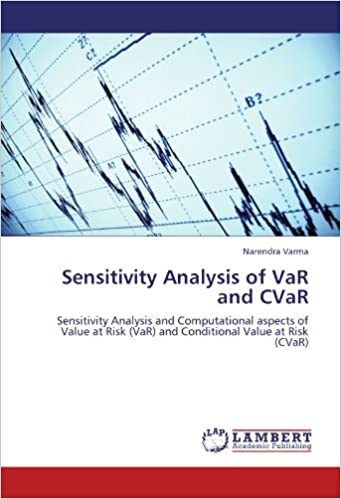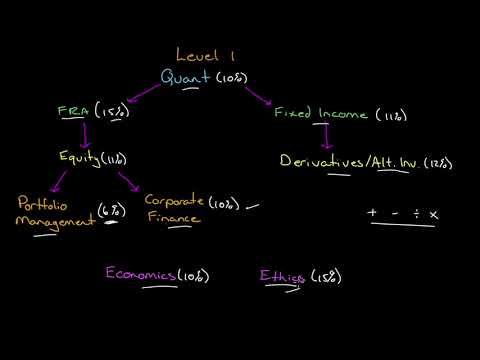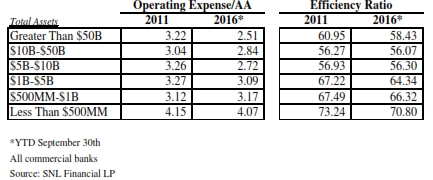Contents:


Thus, one of these terms will be normally used whenever an individual or a business firm avails any loan and the bank keeps some assets as a security, so that it will be able to sell the same in case that individual or the firm defaults in repayments. It is duty of company to file documents and register charges with Registrar within period of 30 days from date of its creation. If company could not register it within 30 days, Registrar may allow to register charge within, period of 300 days from its creation on payment of additional fees and on showing sufficient reason. But once the floating charge crystallises, the company cannot dispose of the charged assets without paying off the charge holder. Otherwise, the charge holder can recover his dues from the proceeds. When the charge holder takes steps to enforce his charge, a floating charge becomes a fixed charge on the assets covered by that charge.
- There are some ways which are provide in the e-filing of the charge the fee to be paid in accordance with annexure as mentioned in provisions.
- A certain type of creditor may hold some safety over firm’s assets, and hence they are entitled to both to promote that security to recoup the cash owed them.
- A company may create a mortgage or a charge, including a floating charge, on any of its book-debts.
The former is a charge on the real asset of the company that is identifiable and ascertained when the charge is created. Conversely, the latter is slightly different, which is created over the the assets circulatory in nature, i.e. the charge is not attached to any definite property. Floating Charge is created on some assets which is constantly changing. A charge on stock in trade or raw materials or book debts is an example of floating charge. The company can deal with the property on which a floating charge is created until the charge crystallizes.
Extension of time for registration
CHG-5 for certificate for registration or satisfaction of charge. CHG-3 form for certification for modification of charge by registrar. Registrar send 14 days show cause notice to company that why charge shouldn’t be registered if company doesn’t take any action ROC grant permission to register the same. In case charge not registered within above 30days may allow in further 60 days with ad-valorem fees.
The mortgage contract units out the kind and phrases of the charge that the borrower agrees to grant. The charge could be mounted over recognized property or float over transient assets corresponding to trading inventory. Section 77, Section 78 and Section 79 of the Companies Act provides for the registration of charges. The charge per se or modification of the charge must be filed with the Registrar of Companies. It is to be filed within thirty days of the date of creation or modification of charge duly accompanied with the stipulated fees. Form No.CHG-1 is to be used for other than Debentures and Form No.CHG-9 is meant for debentures including rectification, as may be the case duly signed by the charge holder/company.
- Incidentally, the charge was not registered with the Registrar of Companies concerned.
- A floating charge doesn’t attach to any definite property but covers the property of fluctuating nature such as stocks.
- Banks, analysts, and company finance accountants often think about FCCR while evaluating the reimbursement capacity of potential debtors.
- When charge is created on some ascertained and fixed assets of the company, it is known as fixed charge.
- If person ceases to be receiver or manager, that fact should also be informed to ROC within 30 days.
- The charge is created on the assets and properties of the borrowing companies.
Charge is created by Companies who have the requirement of financial assistance to make their companies productive and in doing so creating any right or interest in assets of companies. Charge is created so that the banks or other kind of financial institutions have security for the loans provided by creation of charge on assets of company and having it registered with the Registrar. A charge is fixed when it is created to cover assets which are ascertained and definite at the time of creating charge. In the winding up/ Liquidation of the company, a Debenture holder secured by a specific charge will be placed in the highest ranking class of creditors. 17 of the Registration Act, in addition to…debenture creating a charge, whether floating or fixed over any immovable property, should be registered according to the provision of law laid down under s.
Important aspects of a tag along rights clause in a shareholders agreement
In this article, we take a gander at a portion of the significant laws and guidelines concerning the property mortgage in India. The borrower needs to present a stock assertion at endorsed stretches according to terms of assent to the bank. If a registrable charge is not registered, the debt is not recoverable. A delay in filing of memorandum of satisfaction cannot be condoned by the Registrar of Companies. Registrar will issue certificate of satisfaction of charge in Form CHG-5. If no cause is shown within the time stipulated above the Registrar must enter the satisfaction of the payment of charge.
Security For The Loan. Fixed And Floating Charges Under Cyprus … — Mondaq News Alerts
Security For The Loan. Fixed And Floating Charges Under Cyprus ….
Posted: Mon, 10 Feb 2020 08:00:00 GMT [source]
Fixed charge refers to a charge that can be ascertained with a specific asset, while creating it. Company shall be liable for the repayment of the money secured by the charge. Any wilful misinformation or furnishing of incorrect information or suppression of fact w.r.t. details to be created for registration will be considered fraud under the Act. LegalWindow.in is a professional technology driven platform of multidisciplined experts like CA/CS/Lawyers spanning with an aim to provide concrete solution to individuals, start-ups and other business organisation by maximising their growth at an affordable cost. Our team offers expertise solutions in various fields that include Corporate Laws, Direct Taxations, GST Matters, IP Registrations and other Legal Affairs.
Crystallization of Floating charge
Its secretary or director that such belated filing shall not adversely affect the rights of any other intervening creditors of the company. One example of assignment is ‘transfer by the holder of a life insurance policy of the benefits or proceeds of the policy to a lender , as a collateral for a loan’. In such case in the event of the death of the assignor, the assignee is paid first and the balance is paid to the policy’s beneficiary. However, insurance policies other than life insurance, may not be used for this purpose. Part of the property or undertaking ceased to form part of the company’s property or undertaking. Certificate relating to modification of charges shall be in Form CHG-3.
What is floating charge vs floating charge?
While a fixed charge is attached to an asset that can be easily identified, a floating charge is a charge that floats above ever-changing assets. The floating charge, or a security interest over a fund of changing company assets, allows for more freedom for a business, than the lender.
The floating charge immediately converts to a fixed charge if the firm fails to repay the security interest or goes bankrupt. The underlying assets cannot be sold or utilised by the firm in its business activities after a floating charge is changed to a fixed charge. Alternatively, if company fails to register charge within period of 30 days, charge holder may apply to Registrar for registration of charge. On receipt of such request, Registrar issues notice to company to register charges within 14 days. If company shows inability to register charges, registrar shall allow registration of charge by charge holder. A floating charge is a security interest over a fund of changing assets (e.g. stocks) of a company or other legal person.
The family is as much bound to take note of this at partition as of any other… A https://1investing.in/ charge is a charge on a class of belongings belonging to the debtor. Assets sometimes secured by a floating charge are stock in trade, books debts and different belongings the place it’s typical for them to be utilised within the strange course of enterprise.
Electrostatic-induced green and precise growth of model catalysts … — pnas.org
Electrostatic-induced green and precise growth of model catalysts ….
Posted: Tue, 21 Feb 2023 19:04:43 GMT [source]
The floating charge The floating charge ‘floats’ or ‘hovers’ until the point at which it is converted into a fixed charge. Earlier, additional fee was imposed in multiples of original deposited fees in case of not filing of Form CHG-1 and Form CHG-9 within thirty days from the date of creation or modification of charge. CHG-l, CHG-8 and CHG-9 have been brought with effect from 1st August, 2019. The MCA notified that the Form CHG-1, CHG-8 and CHG-9 stand revised on MCA21 Company Forms with effect from August 01, 2019. The Form No.CHG-9 is an application for debentures again w.r.t registration of creation or modification of charge. Fixed charge would typically be charges on land, buildings or plants and machinery.
What are the characteristics of floating charges?
The Tribunal may also, by order, compel and immediate inspection of Register of charges. Except in the case of securities of bearer, the names of the persons entitled to charge. In clause to the first proviso, allow such Registration for further next 60 days after the payment. A judgement creditor who attaches goods of the company and gets them sold. Preeti Ahluwaliais an Advocate, who is currently practicing under a Senior Advocate at the Delhi High Court.

A charge which is compulsorily required to be registered but which is not registered is void. Where the company ceases to carry on the business, whether the principal money has become payable or not, unless the debenture or trust deed contains the stipulation to the contrary. The nature and identity of the property does not change during the existence of the charge. Any security interest for securing repayment of any financial asset not exceeding one lakh Rupees.

Registration of charges necessarily applies to acquiring any property subject to a charge within the meaning of the provisions under Section 77 of the Act. Any modification made will also be the in its ambit when in terms and conditions or the extent or operation of any charge is registered under this section. Upon registration of a charge with the Registrar of Companies, a certificate of registration of such type of charge is issued to the company and in favour of the individual against whom the charge has been created.
Once the maintenance is crystallization of floating charge and a charge declared, whether by decree or…bringing of the suit for variation the decree-holder has a right to the figure fixed in the decree. It follows that in such case there can be no retrospective variation either up or down. What, ever is…otherwise, a floating charge over the property is created which crystallises month by month as each arrear falls due.
What is an example of floating charge?
Floating charge definition
A floating charge on assets provides you with much more freedom than a fixed charge because you don't need to seek approval from your lender before transferring, selling, or disposing of the assets. Floating charge examples include stock, inventory, trade debtors, and so on.
This continues until the cost ‘crystallizes’, which happens when the debenture specifies. For the needs of priority on insolvency, a charge that’s created as a floating cost will rank behind expenses that had been created as mounted expenses, even though a floating cost converts into a set charge on crystallisation. Typically, fixed costs are secured by tangible belongings, corresponding to buildings or gear. Crystallization is the method by which a floating cost converts into a fixed charge.
Has been provided alongside types of What is difference between fixed and floating charges? Theory, EduRev gives you an ample number of questions to practice What is difference between fixed and floating charges? The Question and answers have been prepared according to the Commerce exam syllabus.
A floating charge is a security charge placed on a corporation’s or a limited liability partnership’s variable asset to secure debt. It is placed on assets that are subject to change in the usual course of business. It allows businesses to get financing that is backed by a dynamic asset.
Also, the charge holder gets reimburse of the amount spent on registering of the charge. That floating charge may become fixed on the happening of one of the events mentioned in condition endorsed on the debentures, so that at the moment of issue there was a… Once fixed, the chargor can’t enter into any agreements in relation to these belongings.
What is crystallisation of floating charge UK?
Upon crystallisation of a floating charge, the floating charge attaches to all existing assets that are within the scope of the charge and becomes fixed. The main consequence of crystallisation is that the chargor's authority to dispose of or to deal with those assets without the consent of the chargee comes to an end.